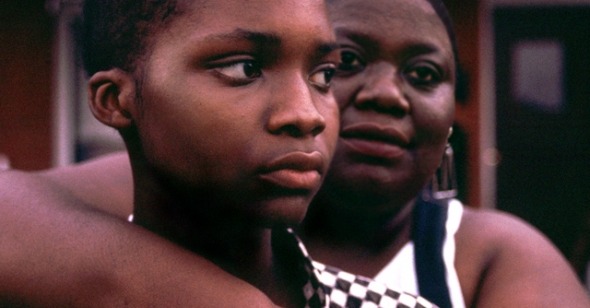Emotional Intelligence
By Chris Wisniewski
A Lion in the House
Dir. Julia Reichert and Steve Bognar, U.S., 2006
It’s rather difficult, maybe impossible, to confront a film like A Lion in the House head on. Steven Bognar and Julia Reichert’s nearly four-hour documentary, which follows five families over six years as they confront the experience of childhood cancer, has a daunting quality that makes me want to run in the other direction. As someone who writes about and intellectualizes film on a day-to-day basis, my instinct is to get at it by talking around it, to enter through the side door. And so, instead of starting by talking about the film itself, I want to caution the reader that, on paper, I am perhaps a not-altogether-unbiased critical voice: Bognar and Reichert are relatives of a friend, and I have a close personal relationship with the film’s distributors, who also happen to be the editors of this very publication. So why open myself up to the possibility of bias in the first place? Why risk compromising my critical faculties for the sake of writing a review? Perhaps it’s because this film so obviously transcends the crass considerations of commerce and prestige that these potential objections are beside the point. In the company of so powerful and graceful a work of human empathy, criticism itself hardly seems relevant.
A Lion in the House opens by introducing us to three extraordinary young people, each of whom are at various stages of cancer treatment: 18-year-old Justin Ashcraft, who has, at the beginning of the film, struggled with cancer for the better part of a decade; 15-year-old Tim Woods, a charming free-spirit who lives with his mother and much of his extended family; and Alex Lougheed, a 7-year-old girl who begins the film in remission. By Lion’s midpoint, Justin and Alex have already suffered severe setbacks, and the filmmakers bring two additional children into the fold, 11-year-old Al Fields and 9-year-old Jen Moore. All of these stories are told delicately; Bognar and Reichert let the children and their families tell their own stories, in their living rooms and their hospital rooms, and the result is forthright honesty and unexpected openness. The filmmakers provide an intimate view of the children, their lives, and their families by spending time with the small victories and agonizing defeats of medical treatment while putting equal emphasis on the broader canvas of life as it’s lived, both through the pain and in spite of it.
It is an unavoidable byproduct of the subject of the film that it has a (sometimes overwhelmingly) raw intensity. Lion doesn’t shy away from the medical realities of the situation—the doctors and nurses speak frankly, and the surgery footage would be graphic enough without the emotional attachment that we have to the children, which does make a few of these sequences nearly unbearable. But the most affecting and difficult material doesn’t come out of the medical realities of the situation so much as the emotional shadings of each family’s experience. Doctors stretch Western medicine to its limits; parents make impossible decisions; children suffer unconscionably; and we, as spectators and outsiders, can only watch.
Such descriptions can quickly become misleading, though. Intense as it may be, watching A Lion in the House is not about watching children die; rather, the film is about watching these children live. And the strength of the film lies in the quiet moments of living. Since I first saw it about a month ago, I’ve most often thought of Alex dancing with her father or Tim and his family visiting Chicago or Justin at his birthday party or any number of the small moments of joy this film offers in spite of the human suffering it portrays. The courage and humanity of each child is stirring—and unforgettable. It’s a privilege to be allowed such intimate access into these lives, and the stories on display here are, for lack of any better description, genuinely inspirational. So yes, it is a four-hour documentary about cancer, and it is achingly sad. It is also a tremendous achievement in documentary filmmaking. More than anything, though—and thanks entirely to Justin, Alex, Tim, Al, and Jen—A Lion in the House manages, miraculously, to be truly life-affirming.
